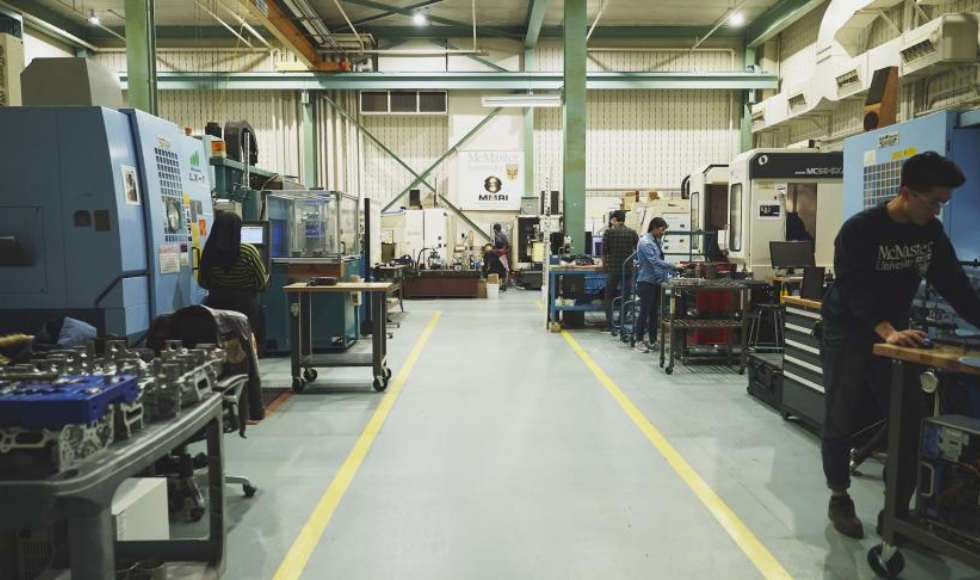McMaster engineers to provide health care workers with critical gear

BY Monique Beech
March 22, 2020
How to supply more ventilators to hospitals that may desperately need them soon? How to create more masks to protect health care workers? How to produce more shields for doctors and nurses?
These are the questions McMaster engineers are swiftly rallying together to answer by joining forces with health care experts to devise solutions to some of the world’s most urgent issues in light of COVID-19.
At the frontlines of this are McMaster mechanical engineers, professors in engineering physics and chemical engineering, technicians and others who are answering the urgent call from medical professionals. They’ve spent this week scouring the web, joining online forums, and planning how to convert campus labs and institutes to help health care workers.
At the McMaster Manufacturing Research Institute (MMRI), researchers have been studying wartime ventilators circa the 1960s and working with a world-wide online community called Helpful Engineering to look at prototypes. As well, MMRI researchers have been collaborating and consulting with experts at Hamilton Health Sciences on ventilator efficacy and functionality.
MMRI researchers say they hope to start building a prototype early next week, and to begin testing on artificial lungs soon after.
“The level of support this effort is getting has been truly inspiring,” said Simon Oomen-Hurst, program manager at MMRI, who is working with several colleagues on this project.
Over at the Centre for Emerging Devices Technology (CEDT), researchers spent Thursday taking inventory of masks, gloves, face shields, cleanroom suits and goggles — equipment normally reserved for the institute’s sensitive semiconductor-related research. All will be donated to local health care providers.
“I have always known how supportive the CEDT staff are of our research community. While I am not surprised at their response to this crisis, my appreciation knows no bounds. McMaster really is a fantastic place to call home,” said Andy Knights, director, CEDT, and an engineering physics professor.
Other engineering researchers are looking at ways to produce masks, including critical protective N95 gear, by using the University’s labs, makerspaces and workshops — spaces normally buzzing at this time of year with engineering students working on their final year projects. Now they may have a new purpose.
“We are getting incredible support from faculty members, students, post-docs, technical staff and our administration who are contributing all they can from their expertise to facilities and materials to enable rapid capacity building and to support our medical colleagues in their important life-saving roles,” said Ravi Selvaganapathy, a mechanical engineering professor.
“Watching the community come together during a time of crisis is truly inspiring,” said Ishwar K. Puri, dean of engineering.
“The time is now for us to act and to use our skills as innovators and problem solvers for the larger public good. I am so proud of our faculty, staff and technicians for joining forces and collaborating with so many others at such a critical time for Hamilton, Canada and the world.”
Anyone who would like to get involved is encouraged to email the Associate Dean Research at Engresearch@mcmaster.ca.


